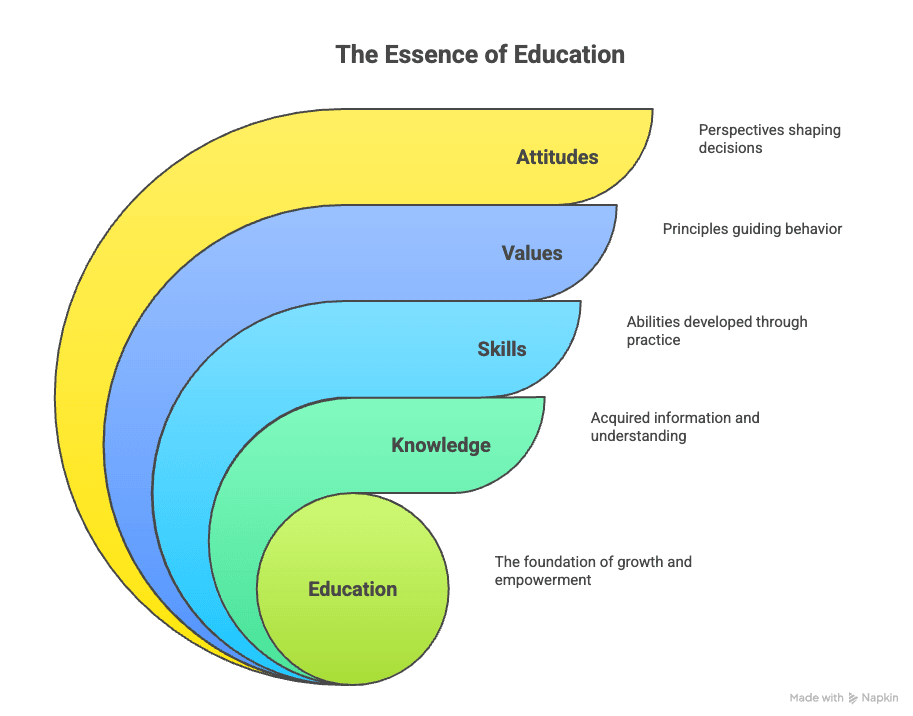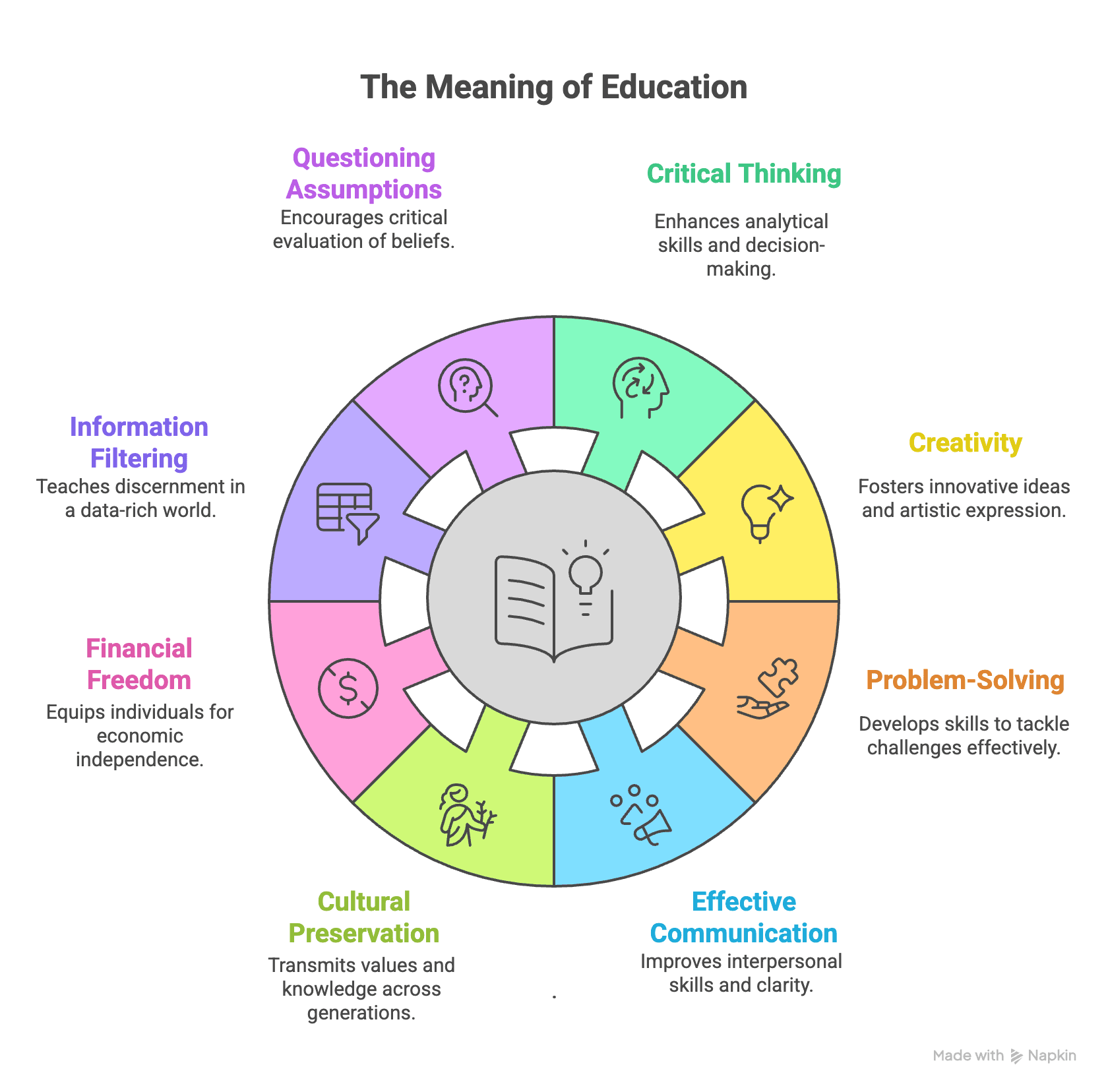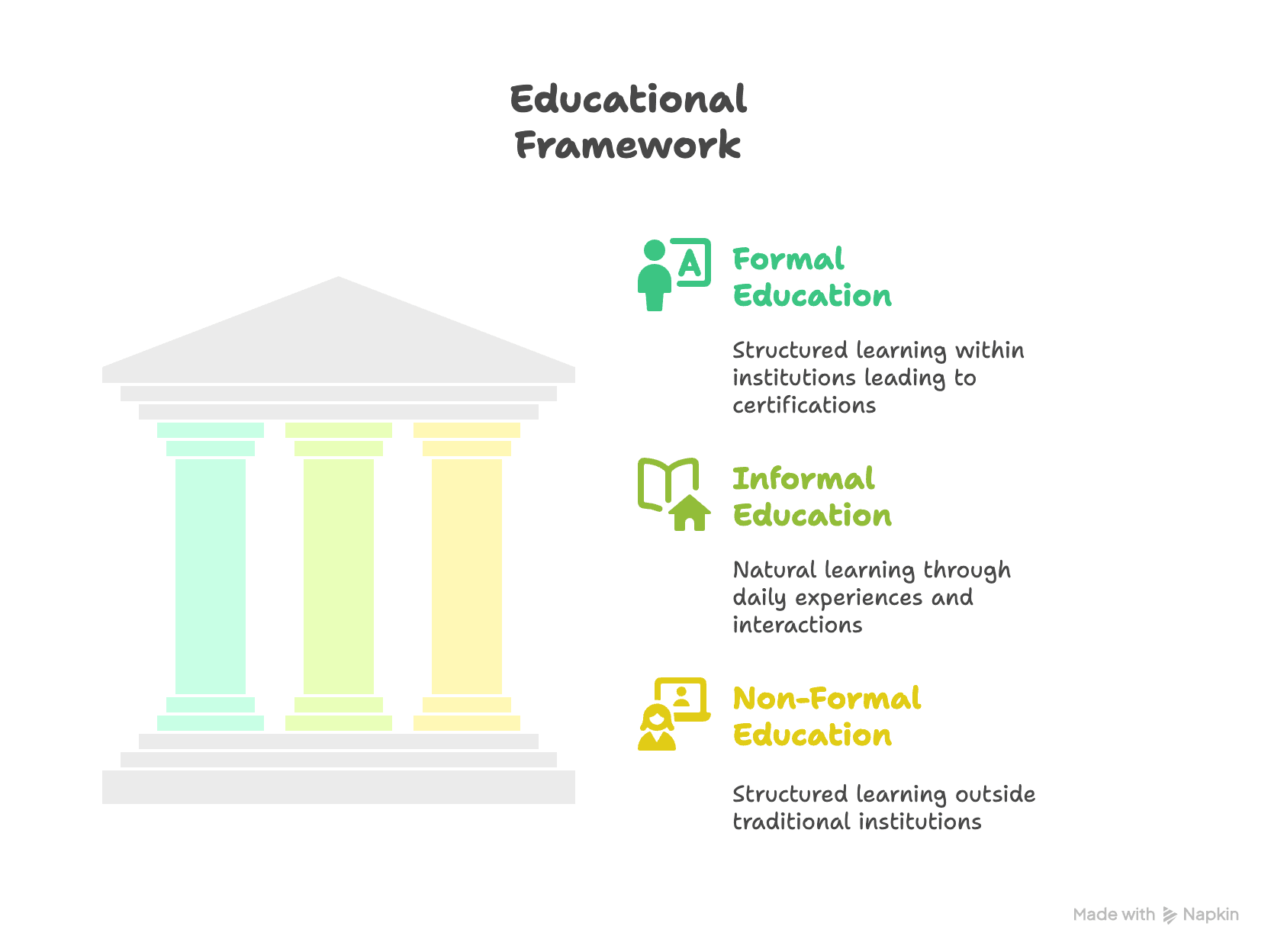What is education? Is it just textbooks and classrooms, or something far more powerful that shapes who we become?
Let us explore.
Education is the foundation of personal and societal growth. It is the process of acquiring knowledge, skills, values, and attitudes through various means, including formal institutions like schools and universities, as well as informal experiences in daily life. Education empowers individuals, shapes their worldview, and equips them with the ability to make informed decisions.

Table of Contents – What is education?
The Meaning of Education
At its core, education is more than just learning facts and figures. It is a lifelong process that fosters critical thinking, creativity, and problem-solving abilities. Education enables individuals to understand their environment, communicate effectively, and contribute to the development of society. It helps in the transmission of cultural values and the preservation of knowledge from one generation to another.
Education is about developing the practical application of knowledge and, more importantly, learning how to think. The ability to question, discern valuable information, and creatively apply knowledge is crucial for achieving financial freedom and living a fulfilling life.
In today’s information-saturated world, a key aspect of education is learning to filter information. One need to discern what information is useful and relevant to you from the vast amount of irrelevant data. Knowing what information one don’t need, based on what one don’t want to become, is also part of this filtering.
Education is deeply connected to right questioning. It involves questioning assumptions, including the very definition of education provided by society or family. This questioning helps one understand what to do in life and, importantly, what one don’t want to do.
Education develops the entire brain, encompassing both logical/practical thinking (planning) and creative thinking (creating something from nothing). It aims to make an individual a multi-dimensional person who can think in various directions and is not confined in their thinking

Types of Education
Education can be broadly classified into three types:
1. Formal Education
This is structured and systematic education provided by institutions such as schools, colleges, and universities. It follows a curriculum and leads to certifications or degrees. Examples include:
- Primary and secondary schooling
- Higher education (college and university)
- Professional training programs
2. Informal Education
This type of education happens naturally through experiences and interactions in daily life. It is not structured or institution-based. Examples include:
- Learning from family and peers
- Self-study through books, online resources, or exploration
- Learning life skills from real-world experiences
3. Non-Formal Education
This is education that occurs outside the formal school system but still follows a structured format. It is often flexible and goal-oriented. Examples include:
- Online courses and workshops
- Skill development programs
- Adult literacy programs

The Importance of Education
1. Personal Growth
Education enhances knowledge, improves communication skills, and fosters self-discipline. It helps individuals achieve their potential and leads to self-improvement.
2. Career Opportunities
A good education opens doors to better job opportunities and economic stability. Skilled individuals contribute to industries and drive economic growth.
3. Social Development
Education plays a key role in reducing inequalities, promoting gender equality, and building an informed and responsible society. It teaches moral values, civic responsibility, and cultural awareness.
4. Technological and Scientific Progress
Scientific discoveries, medical advancements, and technological innovations are all results of education. Educated individuals contribute to research and development, improving the quality of life.
5. Empowerment and Independence
Education empowers people by giving them the ability to think independently, make decisions, and challenge societal norms. It promotes self-reliance and reduces dependency on others.
Conclusion
Education is a powerful tool that transforms lives and societies. It is not just about academic achievement but also about nurturing creativity, ethical values, and life skills. Whether formal, informal, or non-formal, education is essential for personal growth, economic progress, and social harmony. Investing in education is the key to a better future for individuals and the world as a whole.
